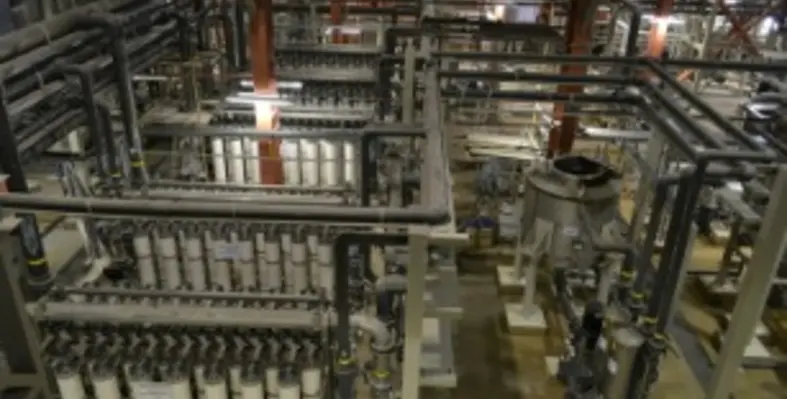The growing problem of freshwater shortages, alongside climate change, is one of the greatest challenges facing humanity for its long-term survival and sustainable future and Rosatom may have a solution
Today, fresh water is so scarce that it makes up a mere 2.5 per cent of all of the water on the planet and according to projections by the United Nations (UN), by 2025, a quarter of the Earth?s population will be suffering from freshwater shortages, leaving some two billion people without ready access to drinkable water.
This prognosis is particularly alarming for the Middle East, one of the world?s worst-affected regions, where many countries with some of the highest per capita water consumption figures, such as the UAE, could run out of freshwater resources in about 50 years.
Globally, the last few years have seen a 14 per cent average annual increase in the demand for desalination. This is amid rapid population growth especially in water-stressed parts of the world, with the typical solution to meet demand coming in the form of seawater desalination. It is not surprising, therefore, that the water-poor, high-consumption MENA region accounts for 70 per cent of the world?s desalination plants. But the hugely power hungry processes of these desalination facilities put an additional strain, and a considerable one at that, on the countries? energy grids.
The growing need for desalination combined with better energy efficiency means there is an urgent need for an evolved technology that would both enable desalination on a large scale and help meet the region?s ever-growing demand for electricity. This can be provided by the use of dual-purpose power-desalination plants that make use of thermal energy extracted or exhausted from power plants in the form of low-pressure steam to provide heat input to thermal desalination plants for multistage flash (MSF) or multi-effect (MED) distillation processes.
Indeed, the benefits of dual-purpose desalination plants are today recognised widely enough for them to account for 10-15 per cent of all desalination facilities. Considering the MENA countries? growing appetite for nuclear power ? with notably, the UAE?s Barakah Nuclear Power Plant (NPP) nearing completion and Saudi Arabia?s plans to build at least two nuclear power units having been announced - a new innovative solution could be staring them in the face.
Nuclear desalination, a solution that integrates desalination technology with nuclear power plants, has been in existence for several decades and been proven as reliable and efficient in practice. Specifically, a nuclear power plant with an integrated desalination plant was pioneered by the Russian nuclear industry and implemented in Aktau, Kazakhstan. The Aktau plant was commissioned in 1967 and operated for some 40 years (exceeding its original lifespan), fully meeting Aktau?s population (more than 150,000) and industries? freshwater needs.
Today, Rosatom, the Russian State Atomic Energy Corporation, offers desalination plants integrated with large nuclear power plants. These desalination plants can be based on thermal distillation, reverse osmosis technology or its combination, i.e. hybrid desalination plants, and have a daily capacity of up to 170,000 cu/m of treated water per nuclear power unit.
The advantages of these power generation and desalination plants are manifold and easy to see ? integrating an NPP and a desalination plant allows for capital and operational costs optimisation as well as benefits from joint infrastructure usage. Additionally, the desalinated water can be used efficiently for the nuclear power plants own needs, ensuring its safety and infrastructural independence, while not requiring any major changes to the NPP?s design.
With a number of MENA countries set firmly on the course towards developing nuclear power to broaden their electricity supply mix in relation to rapid regional increasing demand for both freshwater and electricity, it would seem that the introduction of such nuclear power desalination plants is a win-win solution that MENA countries would seriously benefit from exploring ? and, potentially, implementing in the observable future.
? By Dmitry Repin, PhD, OTEK (a subsidiary of Rosatom), head of project







